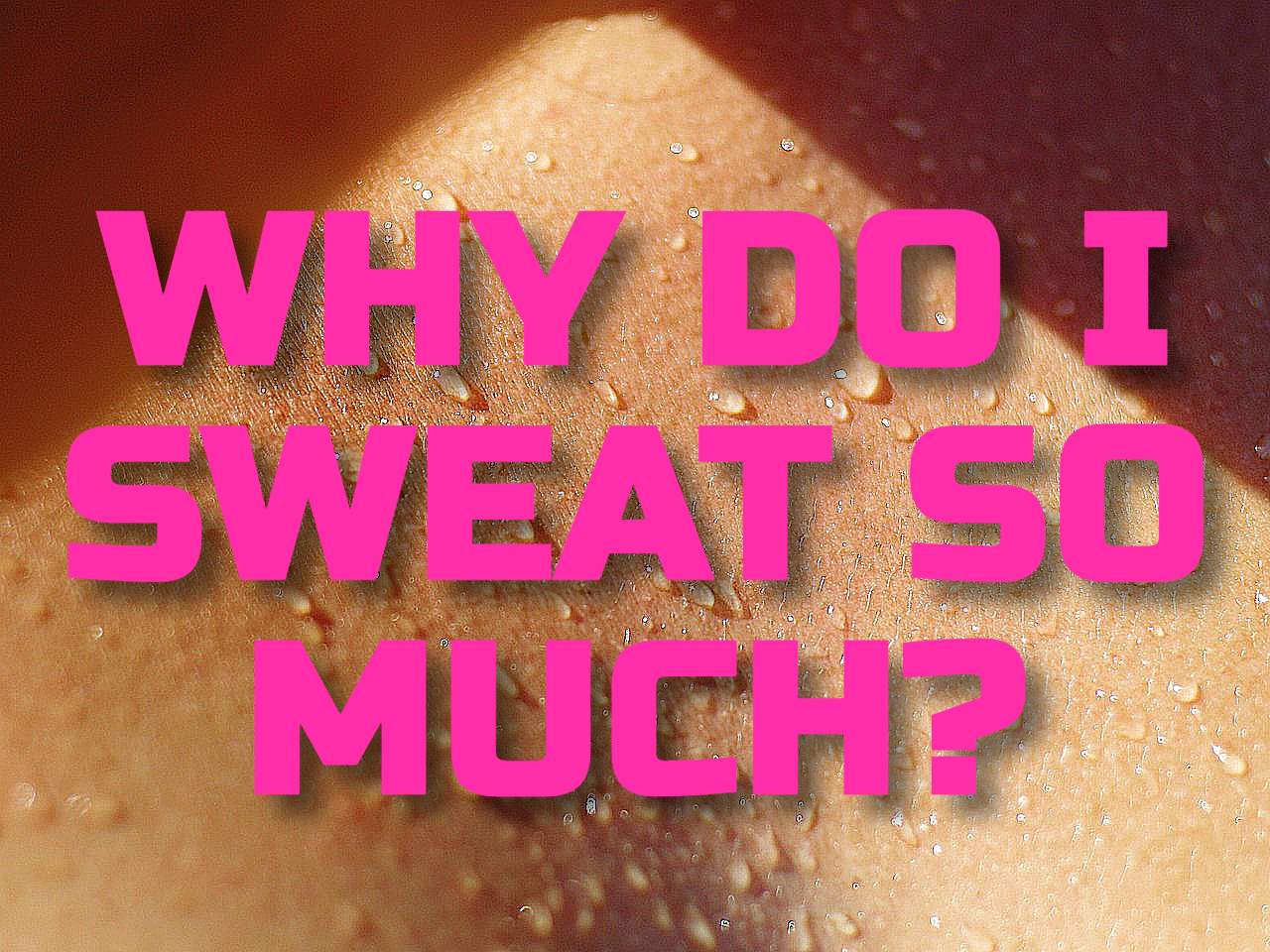Table of Contents
Intro
Sweating is a natural function of the body and can occur for a variety of reasons, such as exercising or being in a hot environment. However, some people sweat far more than others, which can be embarrassing and uncomfortable. Whether you're feeling anxious about something or not, excessive sweating can make everyday activities difficult to do. If you’re constantly asking yourself “why do I sweat so much?” this article will provide some answers.
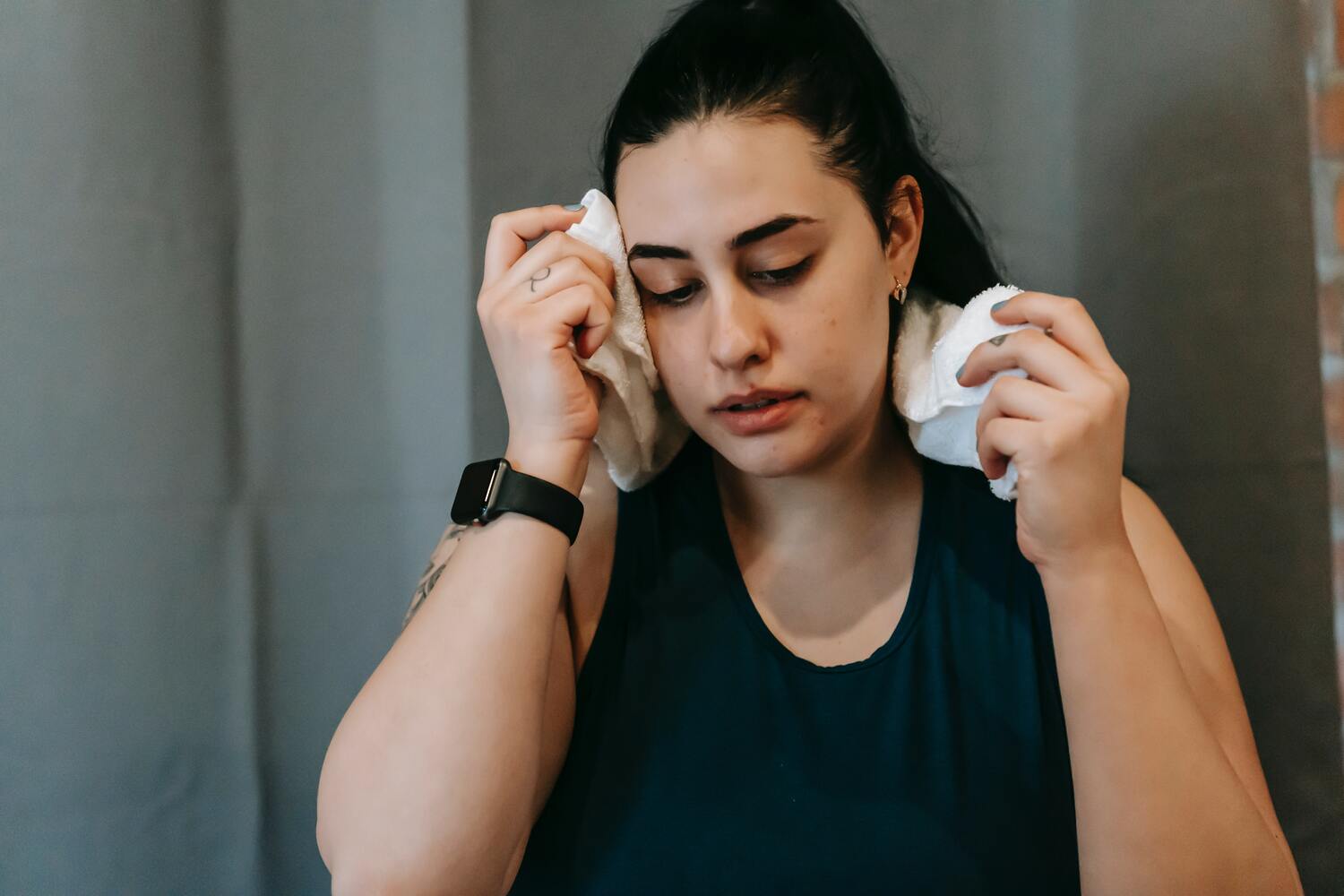
Why Do People Sweat So Much Overview
Sweating is a natural bodily function that helps regulate body temperature. When we get too hot, the brain signals the sweat glands to produce sweat, which cools us down as it evaporates from our skin. However, some people may experience excessive sweating or hyperhidrosis due to various factors such as genetics, medications, medical conditions, and even emotions.
Hyperhidrosis can occur in specific areas of the body such as the palms, soles of feet, underarms, and face or can be generalized across the entire body. It can impact an individual's daily routines and social interactions leading to embarrassment and anxiety. Fortunately, there are several treatments available for hyperhidrosis ranging from antiperspirants and prescription-strength medication to botox injections and surgery.
It is important to note that sweating is a vital physiological process that plays a significant role in maintaining our overall health despite its undesirable side effects at times. If you have concerns about excessive sweating or any related symptoms discussed above, consulting with a healthcare professional would be beneficial in identifying underlying causes and providing appropriate treatment options.
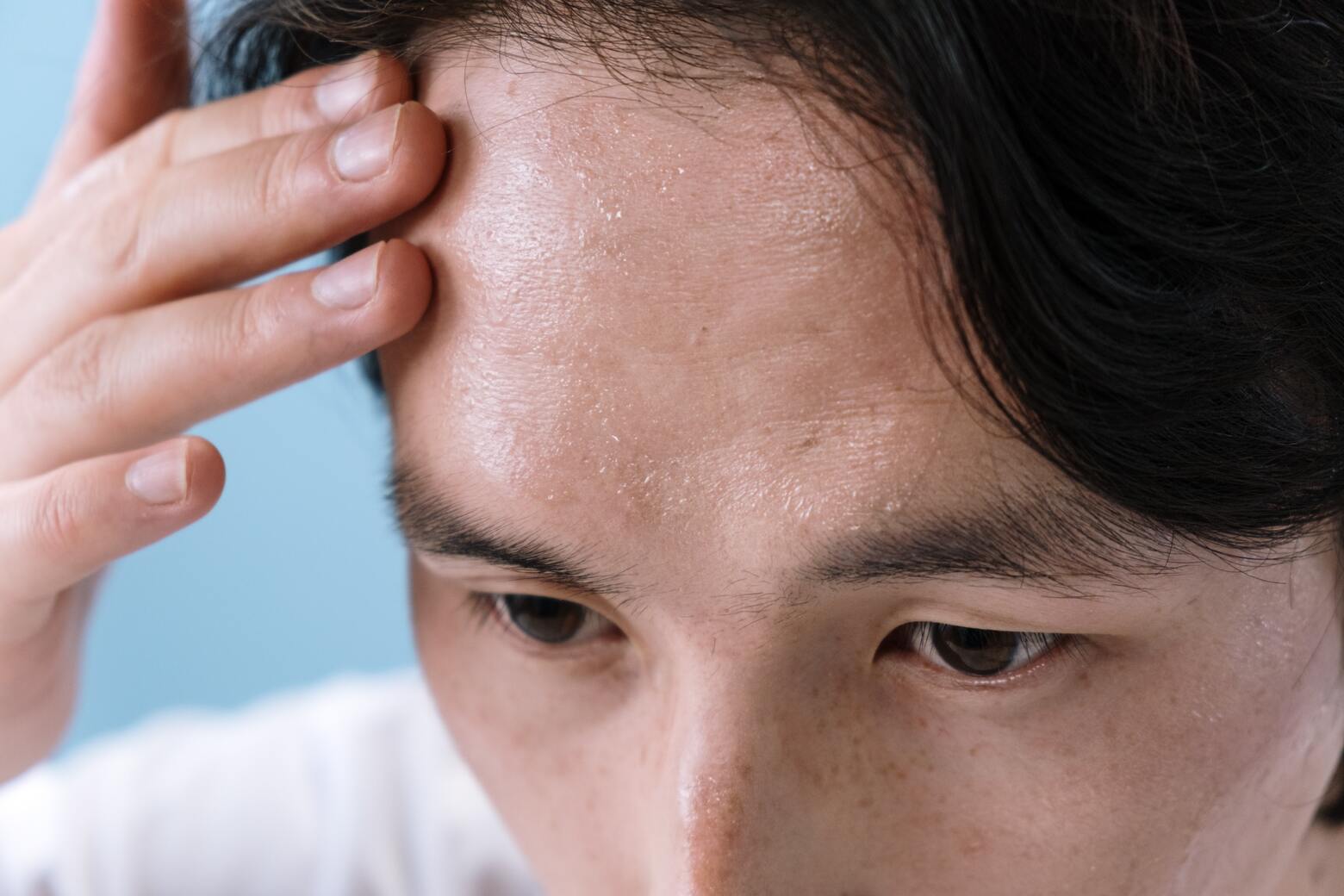
Causes Of Excessive Sweating: Stress, Hormones, Diet
Stress, hormones, and diet can all contribute to excessive sweating. Stress triggers the release of a hormone called cortisol, which increases heart rate and causes your body to produce more sweat. Hormonal changes during puberty, pregnancy, menopause or thyroid problems can also lead to excessive sweating. Additionally, consuming spicy or hot foods like caffeine or alcohol can stimulate the sweat glands.
To reduce excessive sweating caused by stress, try practicing relaxation techniques such as deep breathing exercises or meditation. For hormonal causes of excess sweating, consulting with a doctor about potential medical treatments may be necessary. Maintaining a healthy diet by limiting consumption of caffeine and alcohol along with increasing intake of water-rich fruits and vegetables may also help manage excessive sweating related to diet.
Overall, identifying the root cause of excessive sweating is crucial in order to properly address it. By understanding how stress, hormones and diet can impact your body’s natural response mechanisms you can take steps towards finding relief from this uncomfortable condition.
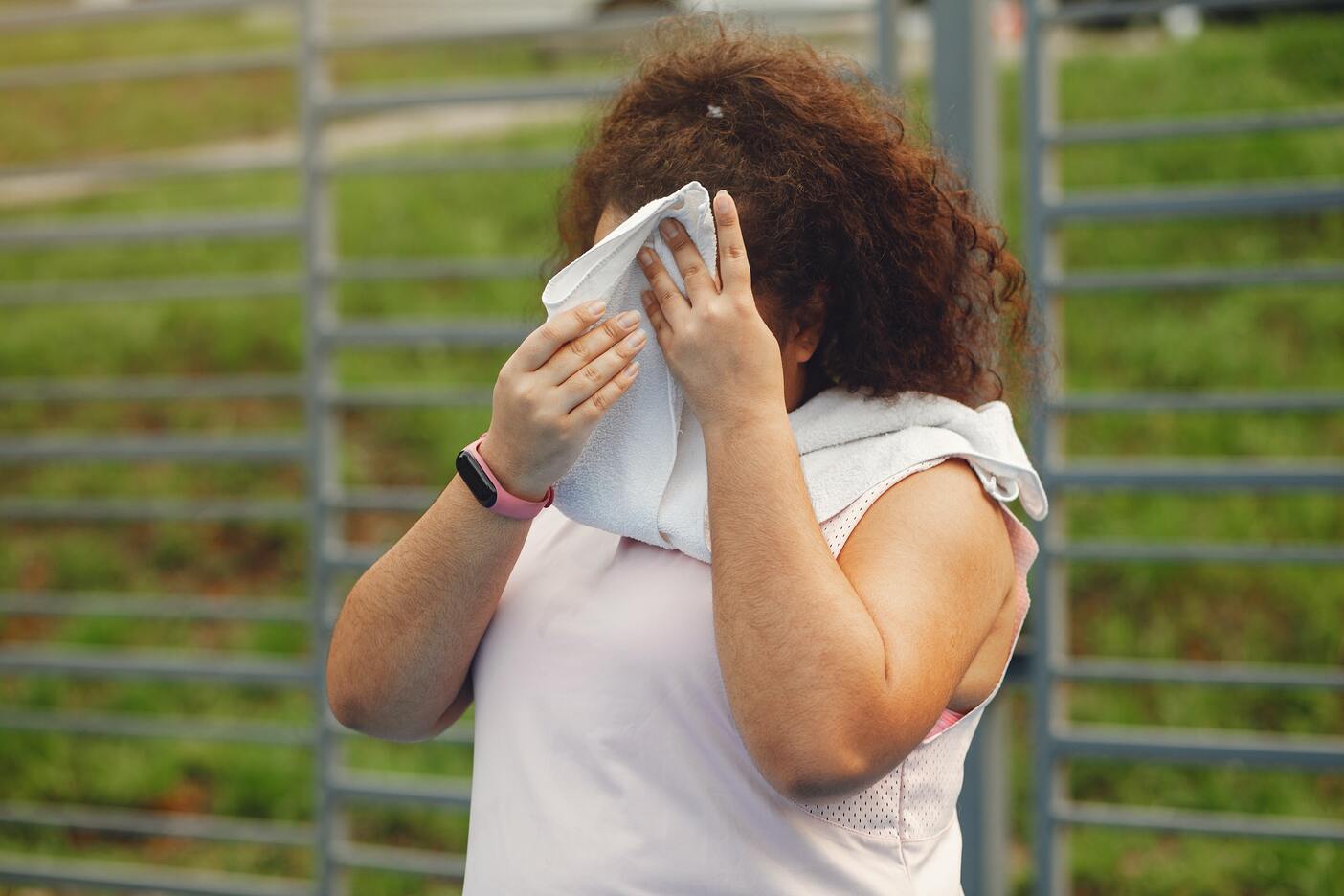
Excessive Sweating: Hyperhidrosis
If you find yourself sweating excessively even when it's not hot or humid, you may be experiencing hyperhidrosis. This condition is characterized by overactive sweat glands that produce more perspiration than necessary to regulate body temperature. Hyperhidrosis can occur in specific areas of the body, such as the palms, feet, underarms, face, and groin, or all over the body.
While sweating is a natural bodily function that helps cool us down and eliminate toxins from our system, excessive sweating can cause discomfort and embarrassment. People with hyperhidrosis may avoid social situations or physical activities for fear of sweat stains or odors. In severe cases, hyperhidrosis can also lead to skin infections and dehydration.
Fortunately, there are several treatments available for hyperhidrosis. These include antiperspirants containing aluminum chloride hexahydrate, prescription medications like glycopyrrolate and anticholinergics that reduce nerve signals to sweat glands, iontophoresis (a therapy involving electrical currents),
Botox injections that temporarily block nerve impulses to sweat glands, and surgery to remove sweat glands altogether. If you think you have hyperhidrosis or are bothered by excessive sweating in general, talk to your doctor about your options for treatment.
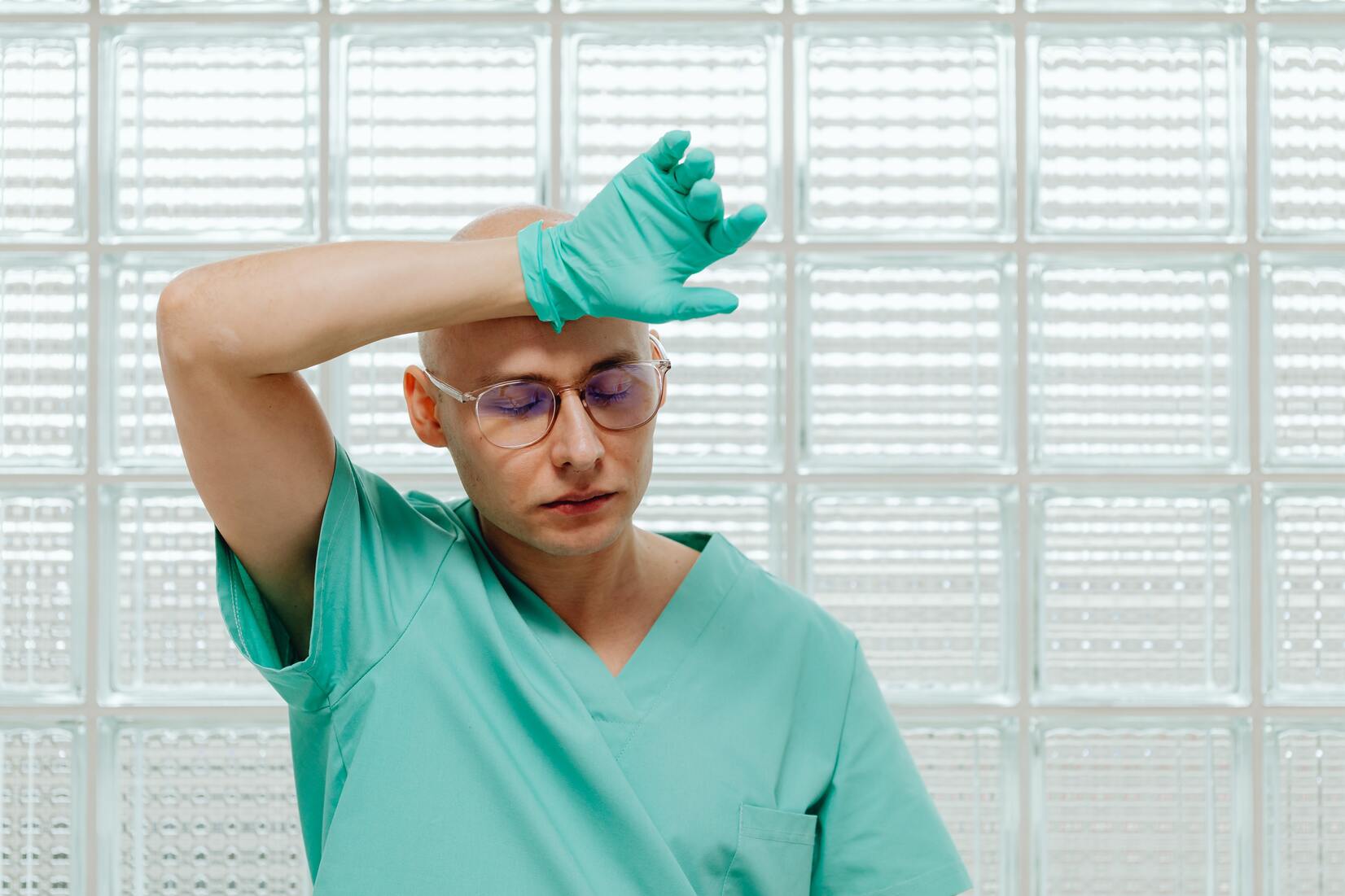
The Difference Between Primary Hyperhidrosis And Secondary Hyperhidrosis
Hyperhidrosis refers to a medical condition where a person sweats excessively, even in cool environments or without any physical activity. It can be categorized into two types: Primary Hyperhidrosis and Secondary Hyperhidrosis. Primary Hyperhidrosis, also known as FOCAL Hyperhidrosis, is a condition where a person may sweat a lot in a specific area such as the armpit or hands.
It occurs due to a problem within the nervous system and is often hereditary. Secondary Hyperhidrosis, on the other hand, involves sweating too much due to an underlying medical condition or side effect of medication. It can affect the entire body or a specific region, unlike the localized Primary Hyperhidrosis.
For example, some medications can cause excessive underarm sweating, which is a type of Secondary Hyperhidrosis. Knowing the difference between these two types of Hyperhidrosis is crucial in correctly identifying and treating the condition.

How To Stop Sweating
Sweating can be an embarrassing problem, but there are ways to stop it. For people with FOCAL Hyperhidrosis, excessive sweating in specific areas like the armpits or hands and feet can be prevalent. The nervous system plays a significant role in sweating in the affected area. The triggers can come from external stimuli, such as heat, exercise, or stress, or internal factors, like a hormonal imbalance.
But, in most cases, it is an underlying condition that triggers sweating. To reduce sweating, you can use antiperspirants and deodorants containing aluminum chloride or baking soda. Some other natural remedies include taking hot baths, wearing breathable fabrics, and avoiding spicy foods. If none of these methods work, you should seek medical attention, as your doctor may recommend other treatments such as topical or oral medications, or even surgery, to stop excessive sweating.
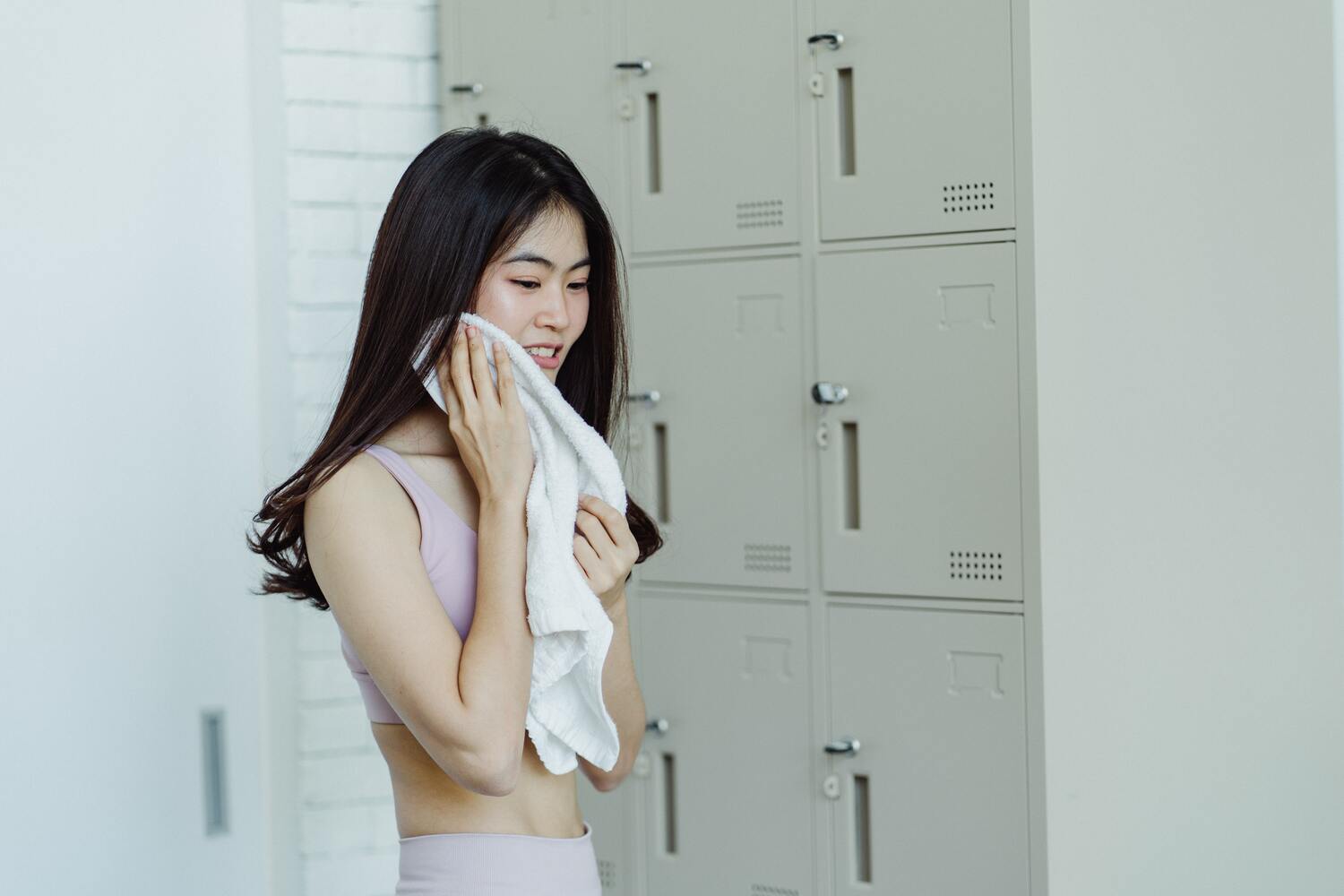
Treatment Options
There are various treatment options for hyperhidrosis, a medical condition characterized by excessive sweating. For those with mild cases of hyperhidrosis, antiperspirants containing aluminum chloride may be enough to manage the sweating. This blocks sweat glands and reduces the amount of sweat produced. However, for those with more severe cases of hyperhidrosis, other treatments such as prescription antiperspirants or injections of botulinum toxin (Botox) may be necessary.
Another option is iontophoresis, which involves using water to conduct a mild electrical current through the skin's surface. This treatment is performed on hands and feet and can help reduce excessive sweating significantly. In some cases, surgery may also be an option where nerves responsible for causing excess sweating are removed or destroyed. It's important to consult with a healthcare professional to determine which treatment options will work best based on individual needs and circumstances.
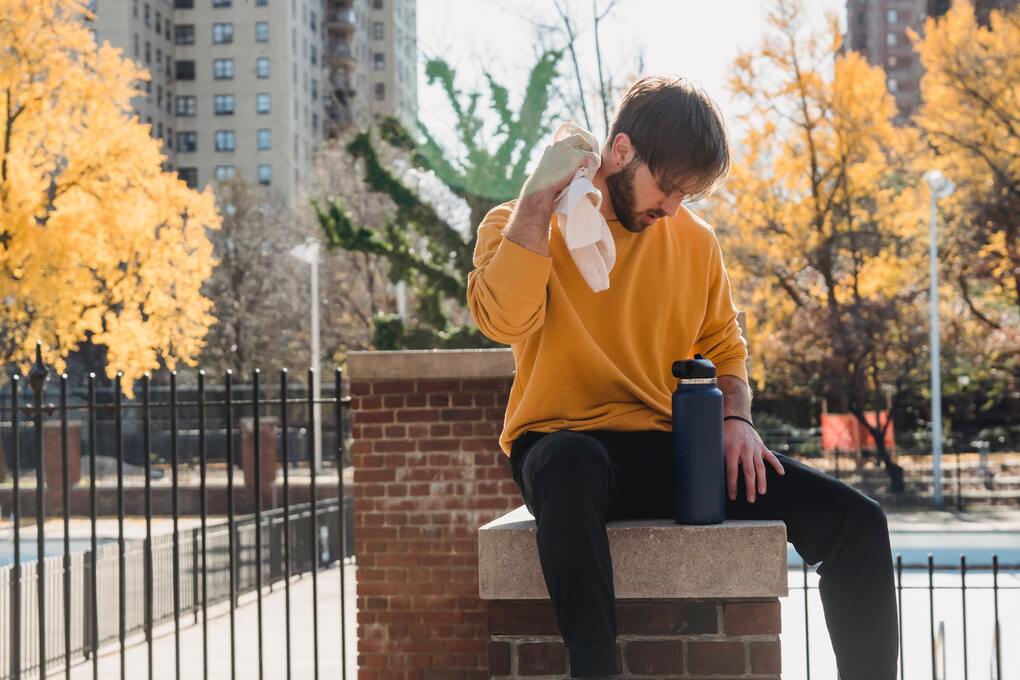
Self Care Tips
Sweating is a normal bodily function that helps regulate body temperature and expel toxins. However, excessive sweating can be uncomfortable and embarrassing for some people. If you find yourself sweating excessively, there are several things you can do to manage the problem. For starters, make sure to wear loose-fitting clothing made of breathable fabrics like cotton or linen. Avoid synthetic materials that trap heat and moisture.
Another self-care tip for managing excessive sweating is to stay hydrated by drinking plenty of water throughout the day. This will help regulate your body temperature and prevent dehydration, which can exacerbate sweating. Additionally, it's important to practice good hygiene by showering regularly and using antiperspirant deodorant to control odor.
Finally, if these self-care tips don't provide sufficient relief from excessive sweating, it may be time to consult with a healthcare professional who can offer additional treatment options such as prescription antiperspirants or botox injections in extreme cases. Remember that taking care of your body also means taking care of your mind – so don't forget to practice relaxation techniques like deep breathing or meditation to help manage stress levels which can also contribute to excess sweat production.
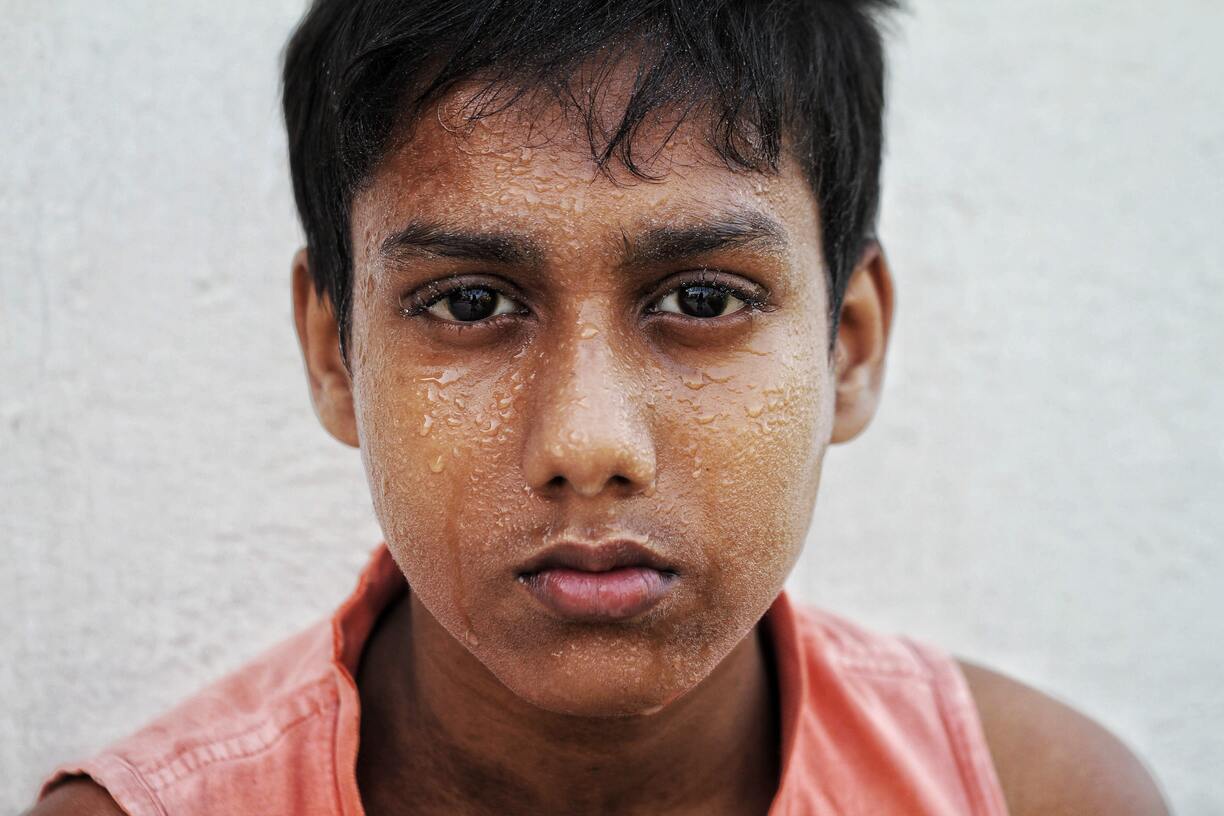
Consequences of Not Treating
Not treating excessive sweating or hyperhidrosis can lead to various consequences. The most obvious consequence is discomfort, which can adversely affect one's social and professional life. Excessive sweating can cause sweat stains on clothing, making it difficult to hide the condition. This may negatively impact one's self-esteem and confidence.
In addition to the social and emotional effects of untreated hyperhidrosis, it can also lead to health problems such as skin infections due to constant dampness, dehydration from excessive water loss, and heat exhaustion in extreme cases. Furthermore, untreated hyperhidrosis may mask underlying medical conditions such as thyroid problems or diabetes.
Overall, not treating excessive sweating or hyperhidrosis can have significant negative impacts on a person's quality of life and health. Seeking treatment options such as antiperspirants, medications, or even surgery may alleviate these issues and improve one's overall well-being.

Conclusion
In conclusion, excessive sweating is a common problem that affects millions of people worldwide. While it can be embarrassing and uncomfortable, there are several treatment options available that can help manage the condition. It's important to speak with a healthcare professional to determine the underlying cause of your excessive sweating and develop an appropriate treatment plan.
In addition to medical treatments, there are also lifestyle changes you can make to help reduce sweating. These include wearing loose-fitting clothing made from breathable fabrics, avoiding spicy foods and alcohol, staying hydrated throughout the day, and practicing relaxation techniques such as deep breathing or yoga. By incorporating these strategies into your daily routine, you may be able to better manage your excessive sweating.
Overall, while excessive sweating can be frustrating and challenging to deal with at times, know that you're not alone in this struggle. There are many resources available for those with hyperhidrosis or other causes of excessive sweating. With patience and persistence in finding the right treatment approach for you, it's possible to live a comfortable life despite this condition.

Related Articles
Sweat Block Why do I sweat so much?
https://www.sweatblock.com/why-do-i-sweat-so-much/
Womens Health Mag Why do I sweat so much?
https://www.womenshealthmag.com/health/a19954073/why-you-sweat-so-much/
Prevention Why do I sweat so much?
https://www.prevention.com/health/a39829527/why-do-i-sweat-so-much/
The Conversation Why do I sweat so much?
https://theconversation.com/why-do-i-sweat-so-much-131135
Runners World Why do I sweat so much?
https://www.runnersworld.com/health-injuries/a28369550/why-do-i-sweat-so-much/
Allure excessive sweating treatments causes Why do I sweat so much?
https://www.allure.com/story/hyperhidrosis-excessive-sweating-treatments-causes
Illuminate Skin Clinic Why do I sweat so much?
https://illuminateskinclinic.co.uk/2023/02/27/why-do-i-sweat-so-much
My Times Night sweats
https://www.nytimes.com/2022/07/28/well/live/night-sweats.html
Sweat Shield Undershirt Why sweat back
https://www.sweatshieldundershirt.com/blogs/stay-dry/why-sweat-back
National World Why do I sweat so much causes of excessive sweating and treatment options explained.
The Smile Practice Excessive sweating why do I sweat so much?
https://thesmilepractice.com/excessive-sweating-why-do-i-sweat-so-much/
Live Science Why do I sweat so much?
https://www.livescience.com/41561-why-do-i-sweat-so-much.html
Nerd Momma Why is my eye twitching?
https://nerdmomma.com/why-is-my-eye-twitching-stop-9-eyelid-twitch-facts/#more-1759
Nerd Momma Why do we yawn?
https://nerdmomma.com/why-do-we-yawn-and-why-is-it-contagious/
